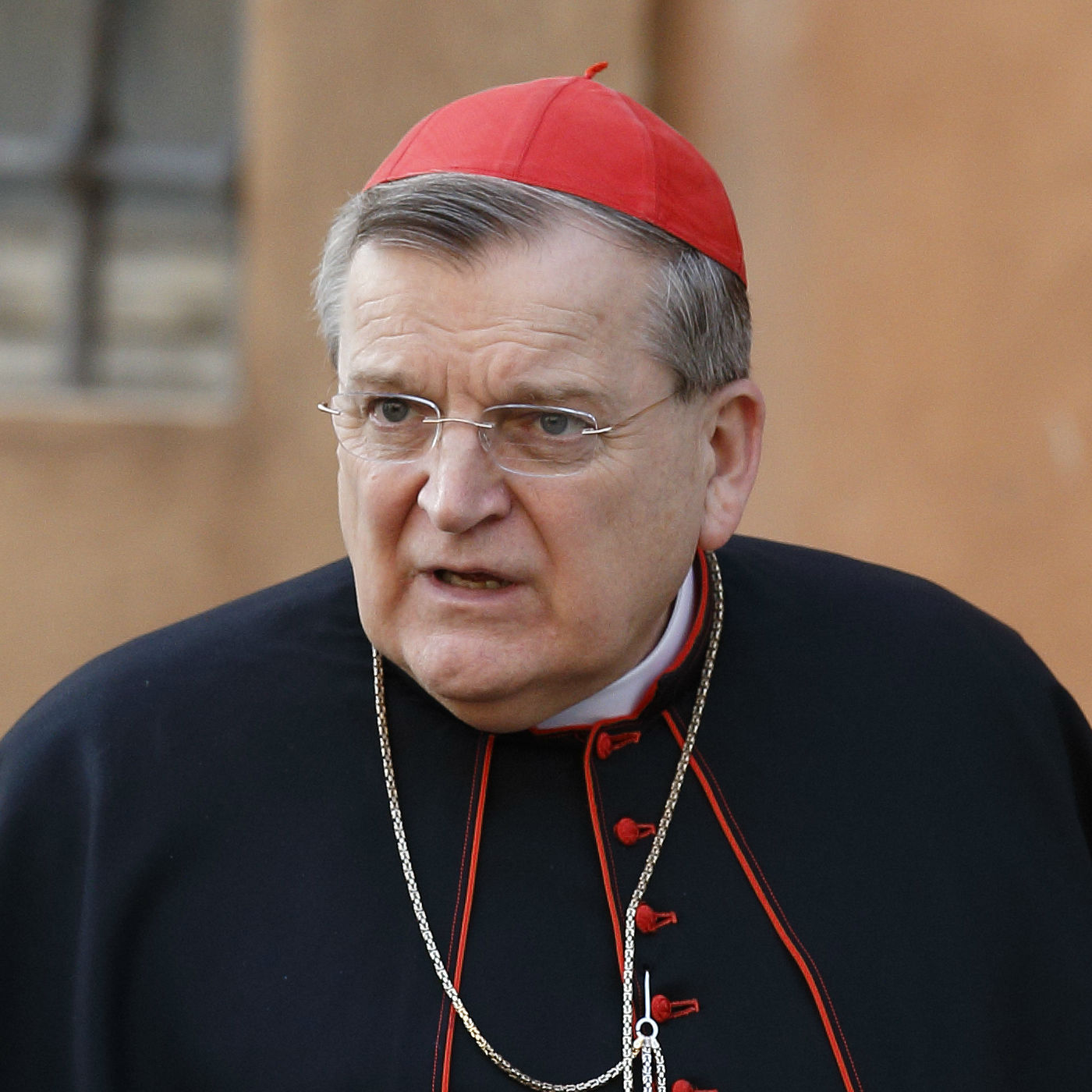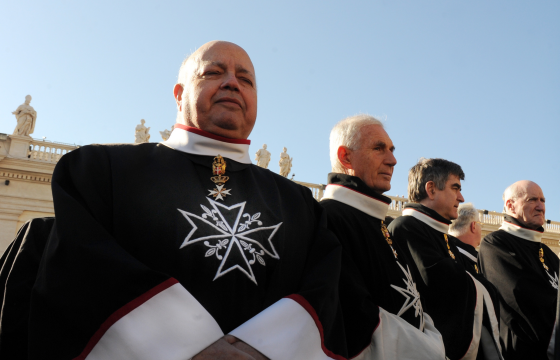The Knights of Malta interim leader has said the group is preparing for sweeping internal reforms which would scrap the requirement that the order’s Grand Master show he is of "noble birth" while introducing an age limit for the post holder.
Ludwig von Hoffman-Rummerstein, an Austrian, has taken charge of the knights following the resignation of Matthew Festing, who stepped down following a bitter public battle with the Vatican. The 80-year-old knight told Austrian newspaper “Der Standard” that current rules requiring the Grand Master be drawn from knights who can prove noble lineage at least 150 years “will have to change”.
It means that just 12 knights are eligible to be the new leader one of whom, according to Hoffman-Rummerstein, is 97-years-old. “We have no age limit. And that is one of the things the Vatican wants – rightly - as there are age limits for bishops, abbots and cardinals etc,” he explained.
Pope Francis has appointed a special delegate, Archbishop Giovanni Becciu, to oversee a “spiritual renewal” of the order with a special focus on the fully professed members who have taken vows of poverty, chastity and obedience. These number just 55 out of around 13,000 knights and dames globally.
The order’s government is meeting on 29 April to elect a new leader but it is possible they will opt to appoint an interim lieutenant who will hold office for a year. Hoffman-Rummerstein also revealed that it was Cardinal Raymond Burke, the order’s patron, who pushed for the sacking of Albrecht von Boeselager, a move which parked the crisis with the Vatican.
The German knight was fired over a row about the distribution of condoms with the cardinal and Festing incorrectly telling Von Boeselager his dismissal was the wish of the Holy See. He also denies the claim made to “The Tablet” Order of Malta sources that Festing described the Pope as his “enemy” during the meeting where the former Grand Master’s resignation was accepted.
Here are excerpts of the interview with Hoffman-Rumerstein which have been translated by The Tablet’s Christa Pongratz-Lippit.
S: The papal investigation commission acted unusually fast by Vatican standards. Do you think the Pope will leave Patron Raymond Leo Burke in office?
H-R: It is pointless to speculate about that .According to our constitution, the Cardinal Patron is appointed by the Pope. That is therefore a question for the Vatican.
S: The Tablet Rome correspondent Christopher Lamb reported that according to Maltese Order sources, Festing called the Pope an enemy at the meeting at which he resigned. Is that correct?
H-R: No, that is not correct. I was there and such a word was not used. So I cannot confirm it.
S: According to another source, there was a “handful” of dissenting votes...
H-R: No, that is not right either.
S: That means that the resignation was accepted unanimously?
H-R: (laughing) As the proportion of votes is secret, I cannot comment on it but it was neither the one nor the other. One has to take into consideration that when the votes are cast there are those who do not want a unanimous vote and therefore make sure that the result is not unanimous.
S:At the 6 December 2016 meeting, at which Grand Chancellor Albrecht von Boeselager’s mandate ended, you, too, were present beside GM Matthew Festing and the Cardinal Patron Raymond Leo Burke. Festing and Burke have made their views public. What really happened at this meeting in your opinion?
H-R: I was present, that is correct. The conversation took place in the normal way. Boeselager said no to Cardinal Burke’s demands that he resign. And I accompanied the cardinal to his car afterwards.
S:What did the cardinal say?
H-R: I cannot remember. He was certainly indignant and shook his head, that one can say. He expected Boeselager to declare his resignation.
S:Boeselager accused Burke of proceeding in the manner of an authoritarian regime. What role does obedience play in the Order of Malta and how far does this go? Where are the limits of obedience?
H-R: The following must be said: The members of the Sovereign Council are elected by the General Chapter and therefore one cannot go up to one of them and say, “You must resign” because perhaps that person did something wrong two or three years ago. Especially as he was not Grand Chancellor at the time. We are elected and have a responsibility towards the General Chapter. It is therefore doubtful whether the Cardinal Patron can even say, “You must resign”. One would have to go back to the General Chapter.
S:Was Boeselager at fault? It is after all principally undisputed that condoms were distributed.
H-R: No, he is not at fault. That something like this happened in an organisation of this size and complexity is not surprising. The decisive point is that the government was always informed and that the right consequences were drawn.
S: Did you take a position at the meeting?
H-R: No, I just listened. Perhaps I was intended to be a witness. It was not a discussion but more of a conversation between Cardinal Burke and Boeselager.
S: When he demanded Boeselager resign, did Burke refer to the Pope?
H-R: I cannot confirm that. He certainly referred to the Holy Father but whether he said that he was acting on the Holy Father’s orders I cannot say.




 Loading ...
Loading ...